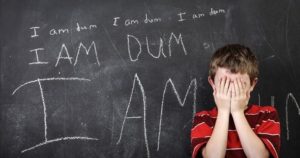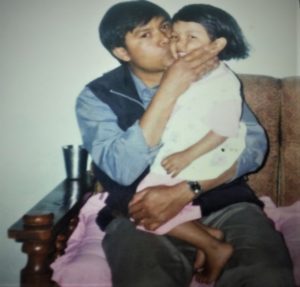– By Deepshikha Thapa
We often talk about mental health, make efforts to be happy, smiley, have high self-esteem, and feel worthy. However, among many reasons behind why an individual feels self-hated and unworthy, the mostly unrecognized one is our childhood experiences. Our earliest experiences may stick with us for years and continue to influence us well into adulthood.
A child whose emotional needs are nourished tends to grow into an emotionally healthy adult in the same way a child whose physical needs are nourished tends to grow into a physically healthy adult. It is unmet needs that create need, not met needs. A study done in the United States revealed that the emotional support that a child receives during the first three years affects academics and adulthood relationships even 30 years later. Higher rates of depression, suicidality, anxiety disorders, post-traumatic stress disorder, and aggressive behaviour have been reported in adults who experienced childhood maltreatment.
Our consciousness can fragment. And when our sense of self becomes fragmented, even though we have one body, within that body, we end up with multiple selves. What most people don’t know is that every child copes with their childhood environment by internalizing their parents. A part of themselves is a perfect mirror of their parent.
Many parents often keep expectations of their own unfulfilled personal goals for their children, not in a desire to fulfill their children’s personal goals. And when they don’t meet according to their expectations we often humiliate the child which results in the creation of a personality fragment in the child that mirrors their parent perfectly. The child starts to humiliate himself or herself first before their parent does because by doing so they do not only control the humiliation or decreases the rate of humiliation but it also hurts less to them. However, this part now internalizes a mirror image of the parent into adulthood too and exists long after the person leaves home and even if he or she is no longer in a humiliating environment. This coping mechanism no longer benefits him or her. And because they keep on walking around with an internal humiliator, it ruins his or her life.
We think a parent can only traumatize their child if they are hitting them or neglecting them etc. This is not the case. In fact, much more damage can happen on an emotional level because of shaming. One of the best examples of this pattern of the internalized parent fragment going horribly wrong for someone, is with self-hate.

Self-hate is one of the most dangerous adaptations a person can develop. It means one of your internal fragments doesn’t want you and may even be in charge of giving you away. If the emotional aspect of one is wounded and if the self-concept is corroded, all other aspects of that person’s life are a living hell.
If an individual can achieve top grades, win medals, speak various languages but can’t manage their emotions, handle stress none of the other stuff is really going to matter. Past trauma, mostly unrecognized is also a reason why individuals aren’t actualizing their potential. And in our society, it seems to be a misconception that high expectations are necessary for motivating a child to be successful. It is important to show the child that you believe them but keeping high expectations and humiliating is a different thing.

We are here to guide the children but there are parents who act like a dictator to the child. Giving them a lot of commands and rescuing child from every experiences strips off away from their self-concept and make the children powerless. The child grows into adulthood feeling powerlessness and having an interpersonal conflict. This is a major problem in our society. Letting children have control does not make them feel entitled, it makes them feel empowered.
Also, few parents make the child believe that their behaviors and actions are responsible for their happiness. Childhood is the age where we either start to learn what we want or start to learn what others want. In order to develop autonomy, intrinsic motivation, and self-efficacy, we need to focus on our own needs. Like a warm sweater on a cold day, doesn’t hold us back, it gives us the comfort and support we need to continue on. When parents expect the children’s behavior to be the basis of their happiness, it sets them to believe in their adulthood that happiness is dependent on another people and they too will feel themselves responsible for other people’s happiness. As a result, it creates a chronically unhappy adult. Through unconscious ques from parents during childhood, most of us develop feelings of being insecure, unloved, and unworthy.
All kids deserve to grow up free from shame, blame, and fear, without any hard punishments. We don’t have to hurt them to grow them into good humans. There are better ways than yelling, threatening, and controlling. We may have emotions and past that are painful and automatic reactions and unhelpful beliefs from our childhoods. It’s up to us to break the cycle. To change the pattern that no longer serves us or our children and control our own reactions. It’s our job to heal ourselves and nurture our own emotional intelligence, so we can nurture our children. So we can accept and understand and love them just as they are. They are already good. The child simply wants us to be with them, and to be interested in what they enjoy and delighted in who they are. The way we talk and behave to our children always becomes their inner voice.
“Speak to your children as if they are the wisest, kindest, most beautiful, and magical humans on earth, for what they believe is what they will become” – Brooke Hampton.



 Member of
Member of
Would love to forever get updated great web blog! .